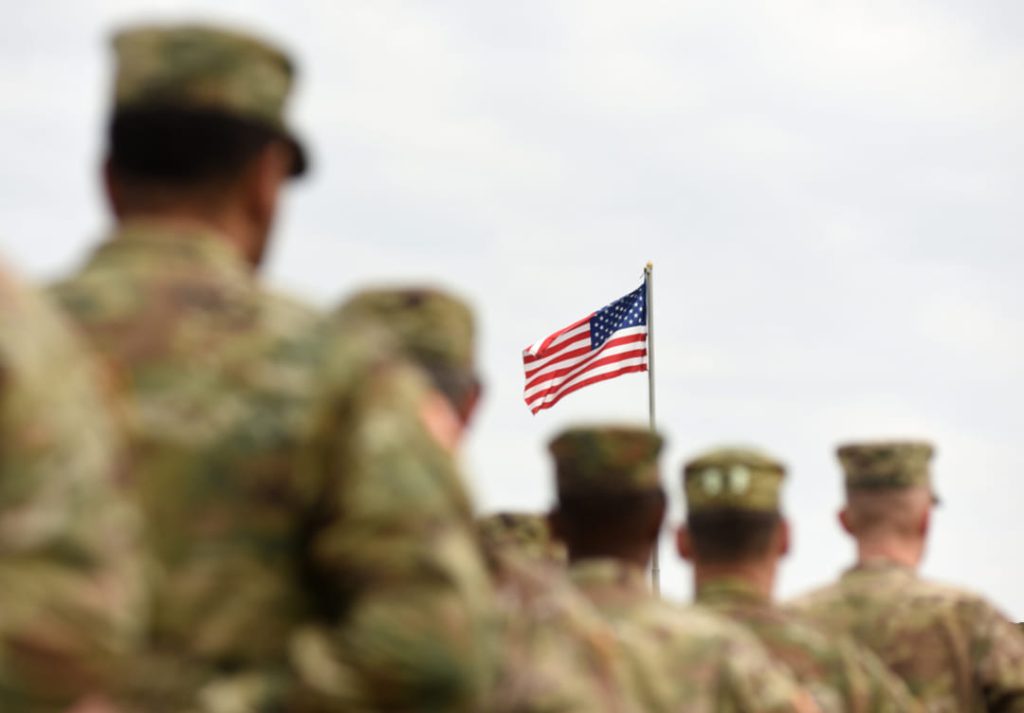Looking for Expert-Level VA Claim Answers?📱Call Us Now! 737-295-2226
You may qualify for a VA rating for major depression if you can prove your condition was caused or made worse by your military service.
Dealing with major depression can be an overwhelming challenge, especially if your mental health struggles stem from your military service.
This guide will explore the impact of major depression in veterans, how the VA rates major depression, steps to service-connecting your condition, and much more.
Remember, we’ve got your back.
Summary of Key Points
- The VA rates major depression under the General Rating Formula for Mental Disorders, with ratings ranging from 0% to 100%, based on the severity of symptoms and their impact on social and occupational functioning.
- To receive a VA rating for major depression, you must prove your military service caused your condition.
- You can file for VA disability for major depression online, by mail, via fax, or in person at a VA regional center.
Table of Contents
Major Depression in Veterans

Major depressive disorder (MDD) causes a persistent feeling of sadness and a loss of interest in daily activities. While commonly referred to as depression, MDD is a specific type of depression that lasts at least two weeks.
A 2018 study found that the overall prevalence of depression among veterans peaked in 2011-2012 at 12.3%, with an increasing prevalence of depression in female veterans.
The VA reports that 1 out of 3 veterans suffer from depression, and 1 in 8 to 10 have major depression.
It’s crucial you reach out to your doctor if you think you have depression. There are ways to help treat major depression, including:
- Medication
- Psychotherapy
- Cognitive behavioral therapy
- Electroconvulsive therapy
- Seeing a psychiatrist, psychologist, or other mental health professional
Remember, despite the stigma surrounding depression, reaching out for help is one of the greatest signs of strength.
VA Disability Rating for Major Depression
The VA rates major depression under diagnostic code (DC) 9434 (Major Depressive Disorder) in the § 4.130 Schedule of ratings—Mental disorders.
The VA rating for major depression is 0%, 10%, 30%, 50%, 70%, or 100%, depending on the severity of your symptoms.
| General Rating Formula for Mental Disorders | VA Rating |
| Total occupational and social impairment, due to such symptoms as: gross impairment in thought processes or communication; persistent delusions or hallucinations; grossly inappropriate behavior; persistent danger of hurting self or others; intermittent inability to perform activities of daily living (including maintenance of minimal personal hygiene); disorientation to time or place; memory loss for names of close relatives, own occupation, or own name. | 100% |
| Occupational and social impairment, with deficiencies in most areas, such as work, school, family relations, judgment, thinking, or mood, due to such symptoms as: suicidal ideation; obsessional rituals which interfere with routine activities; speech intermittently illogical, obscure, or irrelevant; near-continuous panic or depression affecting the ability to function independently, appropriately and effectively; impaired impulse control (such as unprovoked irritability with periods of violence); spatial disorientation; neglect of personal appearance and hygiene; difficulty in adapting to stressful circumstances (including work or a worklike setting); inability to establish and maintain effective relationships. | 70% |
| Occupational and social impairment with reduced reliability and productivity due to such symptoms as: flattened affect; circumstantial, circumlocutory, or stereotyped speech; panic attacks more than once a week; difficulty in understanding complex commands; impairment of short- and long-term memory (e.g., retention of only highly learned material, forgetting to complete tasks); impaired judgment; impaired abstract thinking; disturbances of motivation and mood; difficulty in establishing and maintaining effective work and social relationships. | 50% |
| Occupational and social impairment with occasional decrease in work efficiency and intermittent periods of inability to perform occupational tasks (although generally functioning satisfactorily, with routine behavior, self-care, and conversation normal), due to such symptoms as: depressed mood, anxiety, suspiciousness, panic attacks (weekly or less often), chronic sleep impairment, mild memory loss (such as forgetting names, directions, recent events). | 30% |
| Occupational and social impairment due to mild or transient symptoms which decrease work efficiency and ability to perform occupational tasks only during periods of significant stress, or symptoms controlled by continuous medication. | 10% |
| A mental condition has been formally diagnosed, but symptoms are not severe enough either to interfere with occupational and social functioning or to require continuous medication. | 0% |

Eligibility for a Major Depressive Disorder VA Disability Rating
You may be eligible to receive a VA rating for major depression if you can prove your military service caused your condition (or aggravated a pre-existing condition).
To service connect your depression and be eligible for an MDD VA rating and benefits, you must prove documentation of the following three things:
- A current diagnosis of an identified disability;
- An in-service event, injury, or illness that caused or aggravated the disability;
- A medical nexus (or link) between the present condition and the incident. (can be a Nexus Letter)
How to Get a VA Rating for Major Depression
Filing a VA Claim for Depression: To receive a VA disability rating for major depressive disorder, you must file a VA disability claim. We generally recommend filing your VA claim online since it proves to be quickest; however, you have other options, and it’s best to do what’s convenient for you.
You can file your VA claim:
If you don’t file your VA claim online, you’ll need to download and complete VA Form 21-526EZ.
See More: How to File a VA Claim Online (Tutorial)
The Value of Medical Evidence
Your VA rating will depend on the severity of your condition and their impact on social and occupational functioning, so it’s important to provide relevant medical evidence.
While no amount of medical evidence can guarantee a service connection, it frequently proves to be valuable to VA claims.
Examples of medical evidence include, are not limited to:
- Doctors’ reports
- Medical test results
- X-rays, CT scans, MRIs, etc.
- Service treatment records
You should also consider providing a lay or witness statement to support your VA claim.
C&P Exam for Major Depression
You may be required to attend a compensation & pension (C&P) exam for major depression, which helps the VA decide your claim.
During your C&P exam, you may be asked about:
- Whether you receive treatment or take medication for your major depression.
- How long you’ve been experiencing symptoms.
- Your current symptoms and their severity.
- The level of impairment your depression has on your occupational and social functioning.
We understand it’s not always easy to talk about your depression, but a C&P exam is a crucial time to show vulnerability, so the VA can see the significant impact your condition has on your daily life.
See More: Mental Health C&P Exam Questions Revealed & Explained!
(FAQs) Frequently Asked Questions
Is depression a VA disability?
Yes, depression is rated under the General Rating Formula for Mental Disorders, with VA ratings ranging from 0% to 100% depending on the level of impairment.
Is PTSD and depression the same VA disability?
No, PTSD and depression aren’t the same VA disability, although they are both rated under the General Rating Formula for Mental Disorders, but have different diagnostic codes (DC). The DC for PTSD is 9411, while depression can fall under codes 9433, 9434, and 9435.
What is the average VA rating for depression?
The average VA rating for depression is 70%.
What is the max VA rating for mental health?
The max VA rating for mental health is 100%, meaning your depression is severe enough to cause total social and occupational impairment. If you have a lower VA rating for mental health, you may be eligible for Total Disability Individual Unemployability (TDIU), which pays at the 100% rate if you can’t secure and follow a substantially gainful occupation due to your condition.
What is the VA disability rating for depression and anxiety?
The VA disability rating for depression and anxiety ranges from 0% to 100% under the General Rating Formula for Mental Disorders.
What conditions are secondary to depression?
Depression can frequently lead to secondary conditions, including migraines, sleep apnea, GERD, IBS, and more. See also: Top 5 Secondary Conditions to Depression
NEED MORE ASSISTANCE?
Most veterans are underrated for their disabilities and, therefore, not getting the compensation they’re due. At VA Claims Insider, we educate you on how to understand and take control of the claims process so you can get the rating and compensation you’re owed by law.
Our process takes the guesswork out of filing a VA disability claim and supports you every step of the way in building a fully developed claim (FDC)! If you’ve filed your VA disability claim and have been denied or have received a low rating—or you’re unsure how to get started—reach out to us!
Take advantage of a VA Claim Discovery Call. Learn what you’ve been missing—so you can FINALLY get the disability rating and compensation you deserve!

Kelly Olone
Kelly Olone is a military spouse who earned her degree in Psychology from Florida International University. After working in the non-profit sector for several years, she turned to her passion for writing. She aims to contribute to a better understanding of the valuable benefits that veterans deserve. As a mom, Kelly navigates the delicate balance between deadlines and bedtime stories with finesse.

Quality Assurance Team
The Quality Assurance (QA) team at VA Claims Insider has extensive experience researching, fact-checking, and ensuring accuracy in all produced content. The QA team consists of individuals with specialized knowledge in the VA disability claims adjudication processes, laws and regulations, and they understand the needs of our target audience. Any changes or suggestions the QA team makes are thoroughly reviewed and incorporated into the content by our writers and creators.



